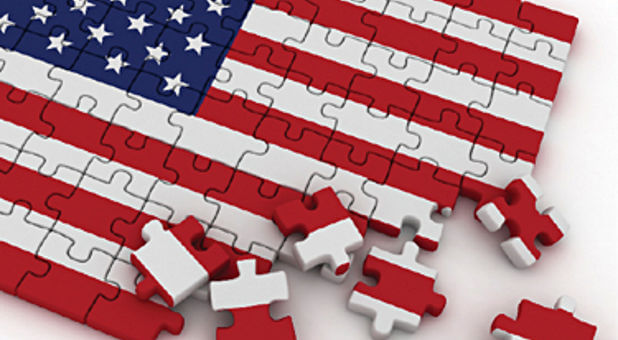To get anywhere, we must understand the sources of the ideas that ail us, as well as their alternatives. We must learn to connect and apply these alternatives and think clearly about them, and defend them persuasively in the public square. That’s a tall order, but it can be done. In our recent book, Indivisible: Restoring Faith, Family, and Freedom Before It’s Too Late, we try to supply the weapons and the body armor that every believer needs to win this war.
But knowing and defending the right ideas is only part of the story. In the 1980s, the Religious Right drew conservative Christians into the rough-and-tumble of politics. This helped the country overcome the Soviet threat, become more pro-life and slow the forces that sought to dismantle marriage and secularize society, but it didn’t reverse the downward trends.
One significant reason is, the Religious Right didn’t emerge from a larger spiritual renewal. The profound cultural changes in Western history—from the Christianization of the Roman world to the Reformation, Counter-Reformation, American Revolution, and the British and American abolition of slavery—coincided with widespread spiritual renewal. The American Revolution grew out of the First Great Awakening. The abolition of the slave trade in the U.S. grew out of the Second Great Awakening.
In recent decades, there have been renewal movements in many denominations and individual congregations. These movements have partly filled the void left by dwindling mainline churches. Yet by many measures, professing Christians are still hard to distinguish from the general population. If we want to transform the culture, we need transformed Christians. That can only come through the cross—through suffering—and the sanctifying power of a life submitted to the Holy Spirit.
Political discussions should never become an excuse for avoiding the question, “What should I do?” If you’re concerned about world poverty, the first question should be, “What should I do about it?” Compassion doesn’t mean feeling sad because someone somewhere is in need. It means “to suffer alongside.”
If you’re worried that families are falling apart, you can’t just focus on divorce law, welfare programs and Internet porn; you should also think about how you treat your spouse and children. If you’re panicked that the national debt is spiraling out of control, then look at your own finances and reflect on how you view the costly entitlements that the government has promised you.
The pursuit of holiness is a challenge for us all. About a century ago, a newspaper asked British author G.K. Chesterton and some other writers to submit essays on the topic “What’s wrong with the world?” Chesterton’s essay was brief. “Dear Sirs,” he wrote, “I am.”
Still, though we often fail, God calls each of us to a holy life overflowing with His Spirit. “If you are what you should be,” said St. Catherine of Siena, “you will set the whole world on fire.” Our world needs a multitude of torches aflame with the Spirit.
To be effective, our personal holiness and public engagement must also be accompanied by tangible, Spirit-filled growth in unity that others can see. Jesus told His disciples, “By this all will know that you are My disciples, if you have love for one another” (John 13:35).
On the night He was betrayed, Jesus prayed that His disciples might be one, as He and the Father are one (John 17). For 1,000 years, the body of Christ was unified. In 1054, however, tensions between East and West led to a tragic split that has never fully healed. Then, in 1517, Martin Luther, responding to widespread corruption, sparked the Protestant Reformation in the West. Since then, Protestants and Catholics have spilled time, energy and blood fighting each other—to say nothing of how Christians have often treated the Jews. There are now some 42,000 denominations worldwide. We seem to be better at splitting than working together.
This division has made us feeble culture warriors. In his recent book To Change the World, sociologist James Hunter explains that cultures are normally shaped and changed, not by majority vote, but by small numbers of “elites” working in overlapping networks. That means 299.9 million Americans might believe one thing—might have history, reason and revelation on their side—but the 100,000 with influence can set the cultural agenda.
Part of the reason Christians have been so ineffective is that we’ve failed to love one another as Christ has loved us. We don’t even have one big alternative Christian network where we can pool our resources and reinforce our efforts. We have all sorts of separate, non-overlapping, even hostile Christian institutions and networks. It hardly matters if 80 percent of the population is Christian if we’re so riddled with divisions that we work at cross-purposes.
Secularists are much more functionally unified than believers. We’re reminded of Joel’s prophecy, which describes the judgment of consuming locusts working in unity. “They each march in line … do not deviate from their paths. They do not crowd each other, they march every one in his path; when they burst through the defenses, they do not break ranks” (Joel 2:7-8, NASB).
With Christians divided, secularists have pushed believers farther and farther to the margins. The principles our grandparents treated as common sense—the right to life, the dignity of marriage—are now treated as bigotry. The moral consensus that sustained our country has ceased to exist. And millions of Americans now see the blessing of opportunity and free enterprise as a curse.












































